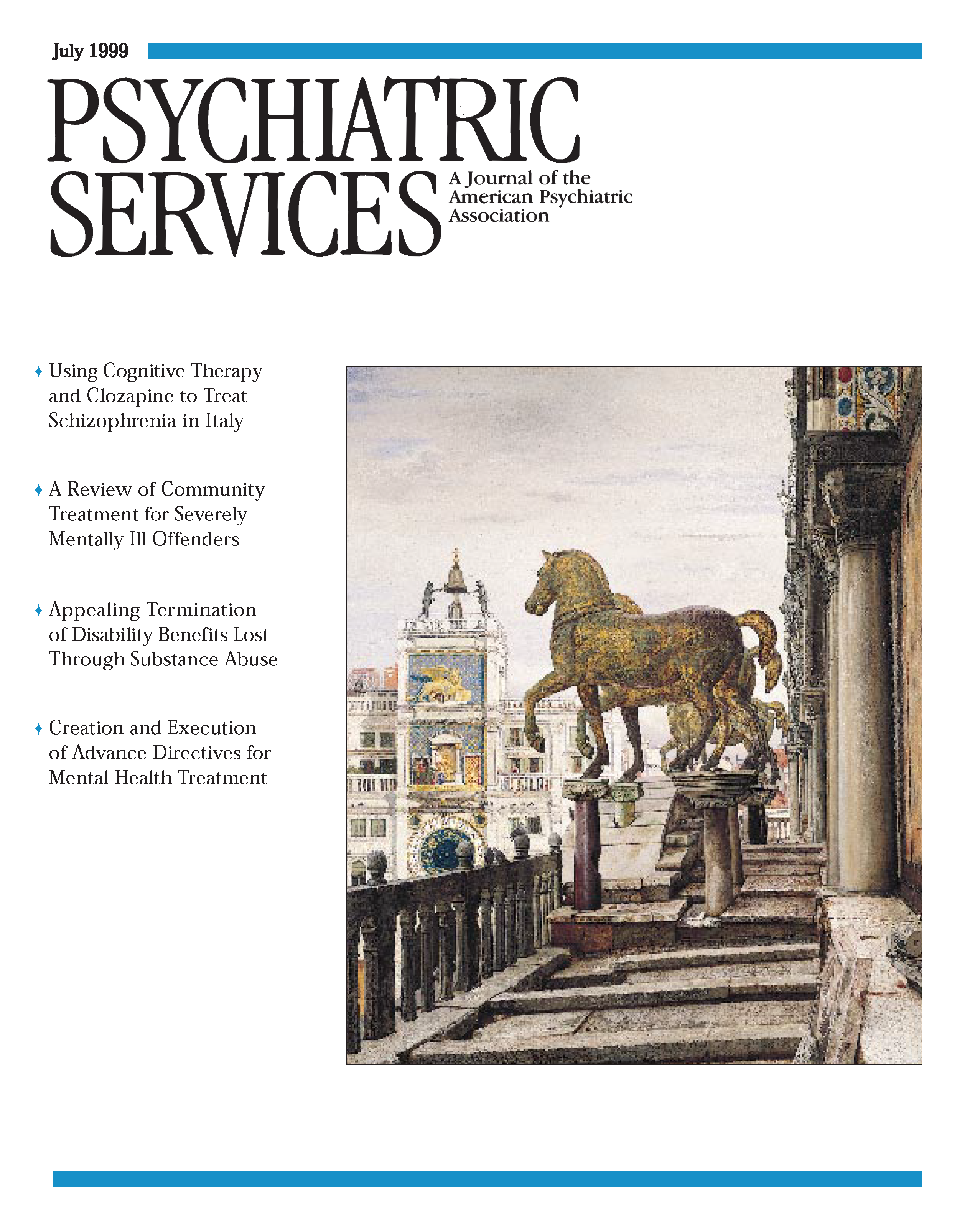Increasingly, psychotherapy is challenged on its efficacy, relegated to an elective in educational programs, and minimized by third-party payers. All these developments occur at a time of increasing evidence that psychotherapies are indeed effective and receive high marks from the most important critics—patients (
1,
2).
Standards and Guidelines for the Psychotherapies is a masterful work that will be of great value in responding to these challenges. The editors of this scholarly, yet practical, book are Paul Cameron, professor of psychiatry at the University of Ottawa; Jon Ennis, assistant professor of psychiatry at the University of Toronto; and John Deadman, associate professor of psychiatry at McMaster University. It will be very helpful to all clinicians and should be required reading in psychiatric residencies and other mental health training programs.
The book is a revised and expanded version of a 1995 task force report from a group formed in 1992 by the Ontario Psychiatric Association. The task force's charge was partly to develop a document to be used as a reference in complaints and disciplinary processes, especially concerning sexual abuse of patients by physicians. These boundary and ethical issues are well covered, but the focus has become much broader. This perspective is clear in the very first chapter, which is an informative exploration of the definition of psychotherapy.
Rather than being disorder based, like the American Psychiatric Association's practice guidelines, these guidelines are organized by psychotherapeutic modality and include individual psychodynamic, brief psychodynamic, cognitive-behavioral, couple and family, and group therapies. The book also has guidelines on psychotherapy for seriously and persistently mentally ill patients and children and adolescents. As the editors note, populations that are not addressed in this work include the elderly, people with developmental delays, and those who are economically disadvantaged. The absence of discussion of psychotherapy with the elderly is a glaring omission, as the literature in this area has become quite extensive.
Ray Freebury, M.D., is the lead author of a marvelous core chapter entitled "General Guidelines for the Practice of Psychotherapy." In it several aspects of the patient-physician relationship are explored—a key concept that is alluded to or briefly considered in many texts, but seldom as thoughtfully as here. This chapter also deals with referral, evaluation, and choice of the type of psychotherapy as well as with issues related to confidentiality, boundaries, and termination. It also discusses maintaining competence and includes brief comments about quality assurance.
In a subsequent chapter, Norman Doidge, M.D., summarizes the empirical evidence for the core clinical concepts and efficacy of psychoanalytic psychotherapies. The nature of evidence and the special problems of traditional research in the area of psychotherapy are well described.
David Magder, M.D., is the lead author of an excellent chapter on guidelines for combining pharmacotherapy with psychotherapy. Seven case reports are embedded in this chapter, and they demonstrate the wisdom and perhaps the necessity of an integrated approach.
Other topics covered in the book include psychotherapy training and supervision, gender and cultural issues in psychotherapy, consent, and record keeping.
Some task forces sow the seed for excellent products. This was clearly one.

